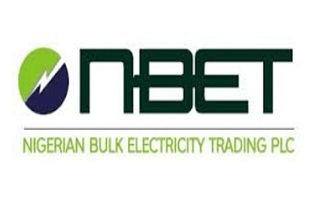Despite an increase in their collection efficiency, the remittance by electricity distribution companies to the Nigerian Bulk Electricity Trading Plc for the energy received by them dropped to 27.5 per cent in the third quarter of 2018 from 31.5 per cent in the previous quarter.
The latest quarterly report released by the Nigerian Electricity Regulatory Commission on Tuesday showed that the Discos failed to remit a total of N108.4bn to NBET in the third quarter.
The government-owned NBET buys electricity in bulk from generation companies through Power Purchase Agreements and sells to the Discos, which then supply to the consumers.
The report revealed that the collection efficiency of the Discos increased from 64.2 per cent in the second quarter to 65.5 per cent in the third quarter.
It said, “During the third quarter of 2018, the 11 Discos were issued a total invoice of N162.5bn for energy received from NBET and for service charge by the Market Operator, but only a sum of N54.1bn (33.3 per cent) was settled by the Discos, creating a significant deficit of N108.4bn in the market.”
NERC said only two of the Discos recorded an increase in remittance performance in the third quarter, adding that none of them remitted up to 50 per cent of their market invoices.
The report showed that Ikeja Disco recorded the highest remittance efficiency (43 per cent), followed by Eko Disco with 42 per cent.
It said Kaduna Disco recorded the worst remittance performance of 10 per cent, followed by Jos Disco (11 per cent).
The regulator said, “Of particular concern is the significant drop in Kaduna Disco’s remittance rate from 21 per cent in the second quarter to just 10 per cent in the third quarter. The commission is currently reviewing the viability of the Discos (Kaduna and Jos) as a going concern.”
NERC said it scheduled a meeting with Kaduna Disco to discuss, as a prelude to asking them to submit their comprehensive strategy towards addressing their operational challenges.
“A similar meeting has been held with Jos Disco to review their performances,” it added.
The regulator said while the low remittance by the Discos to NBET and the MO was partly due to tariff shortfall, the Discos must improve on their technical and commercial efficiencies for improvements on the payment obligation to the market, thereby improving sector liquidity.
“A major initiative towards improving revenue collection in the electricity industry is the provision of meters to all registered end-use consumers of electricity,” it added.
According to the report, the challenge of poor remittance has remained a serious concern to the commission as it is one of the main causes of the liquidity crisis facing the Nigerian electricity supply industry.
It said, “Low remittance adversely affects the ability of NBET to honour its obligations to Gencos while service providers (Transmission Service Provider, MO and NERC) struggle with the paucity of funds impacting their capacity to perform their statutory obligations.
“To address the poor remittance by Discos, the commission has commenced enforcement actions against Discos found to have engaged in unacceptably low remittances to NBET and the MO, factoring in all the parameters embedded in the tariff model.
“In this regard, the commission is finalising a framework which ensures transparency and equity in the disbursement of market funds for the benefit of all participants in the industry.”
















